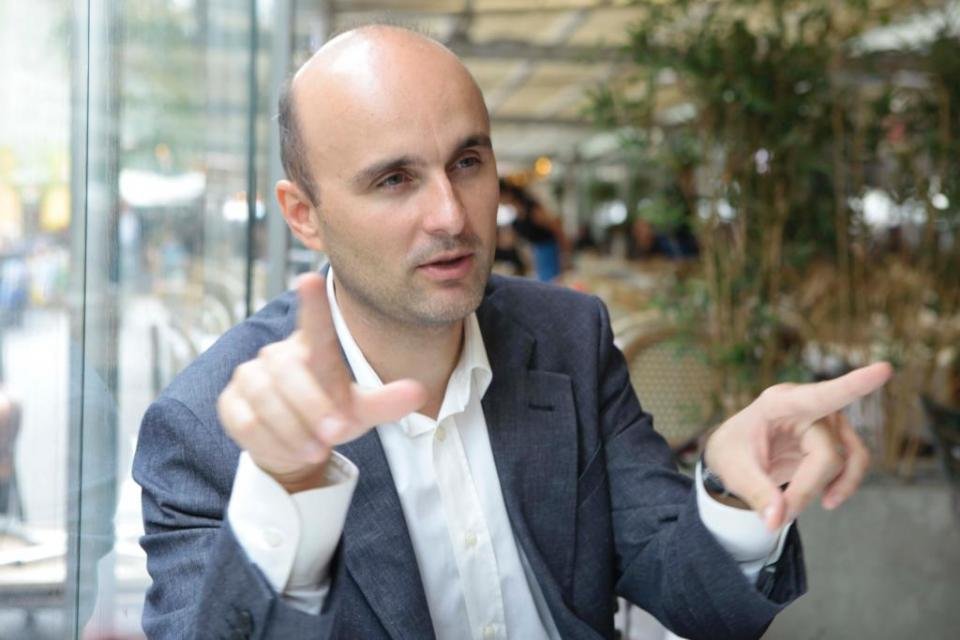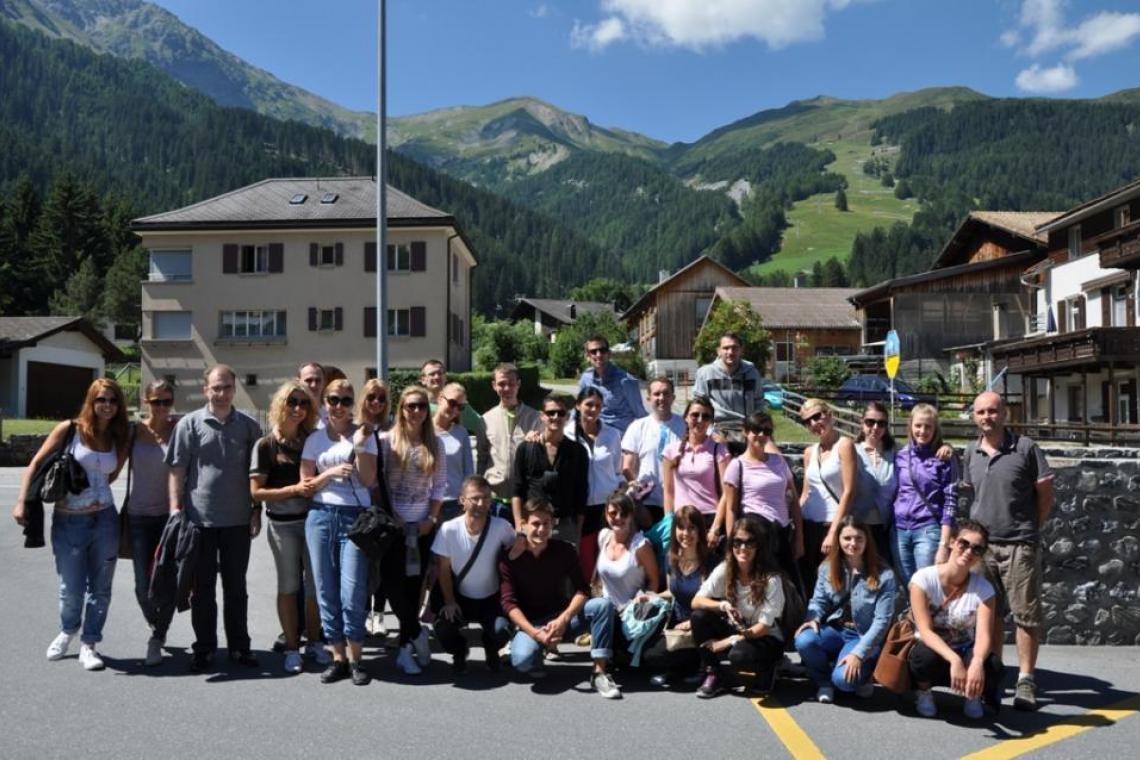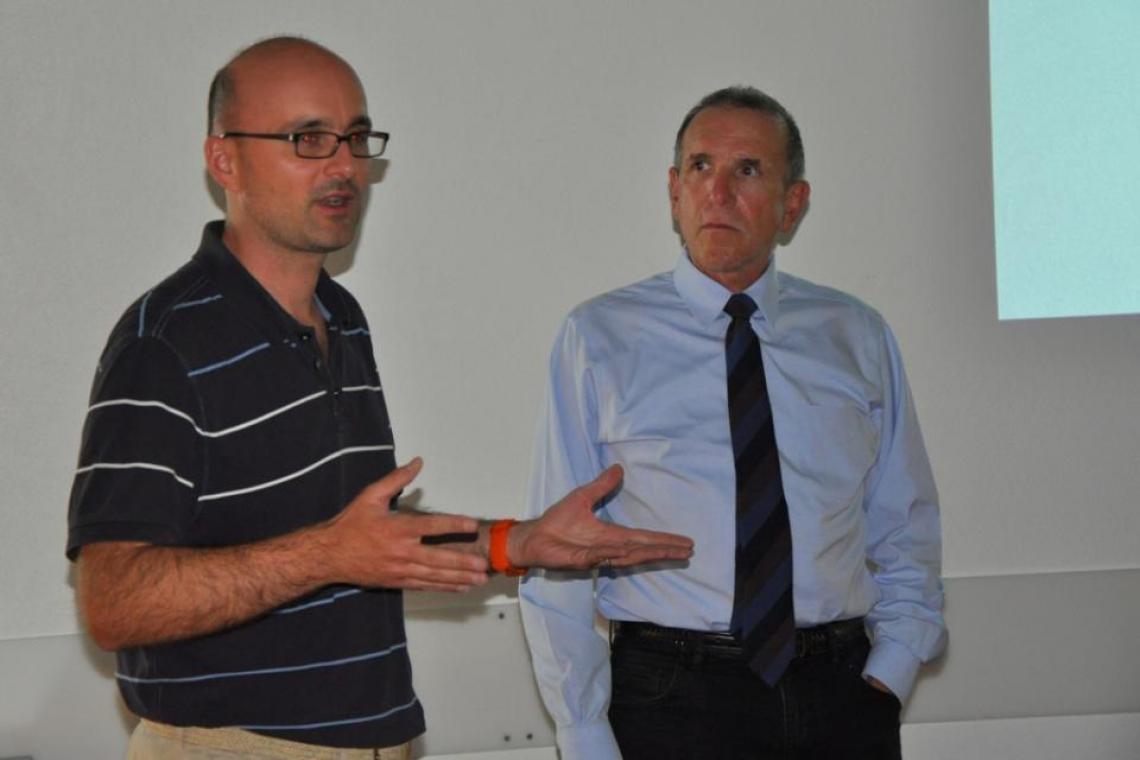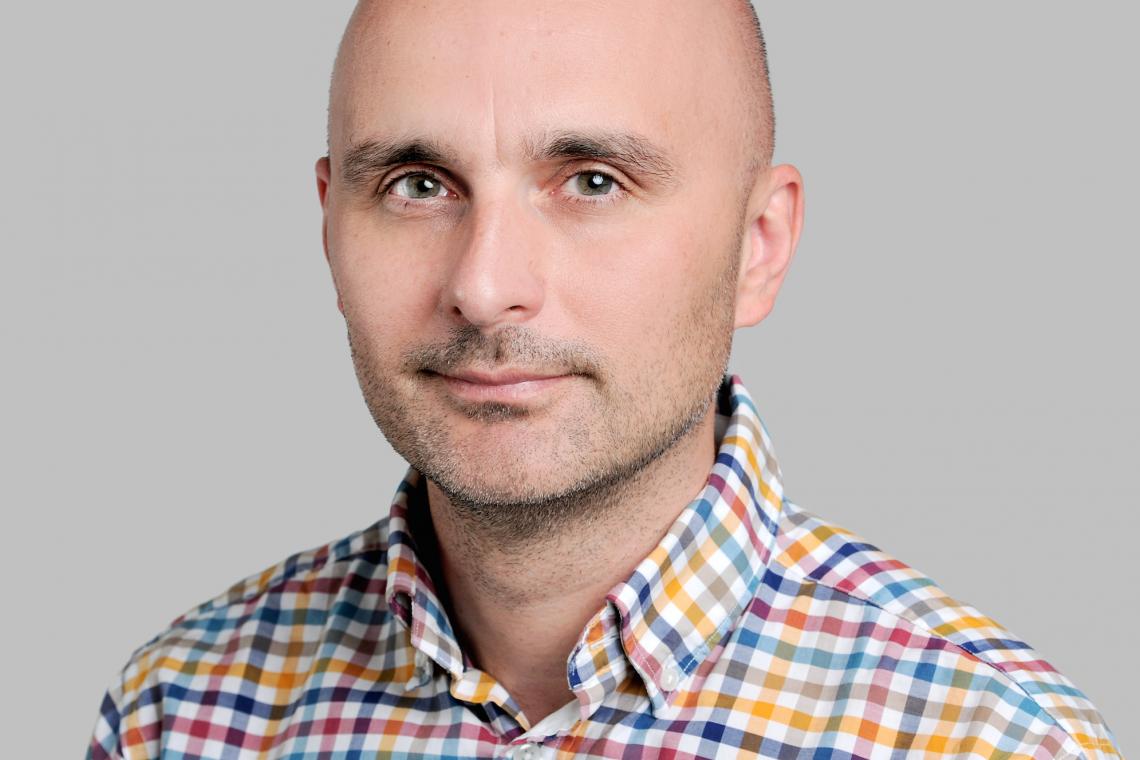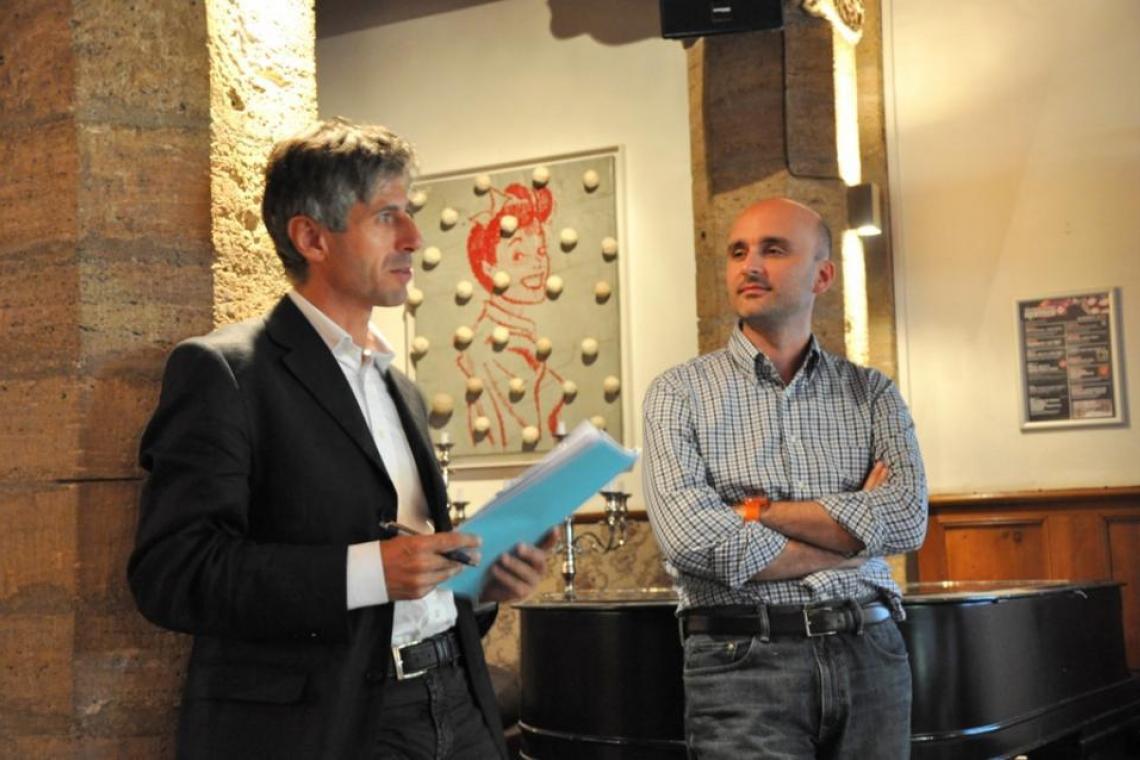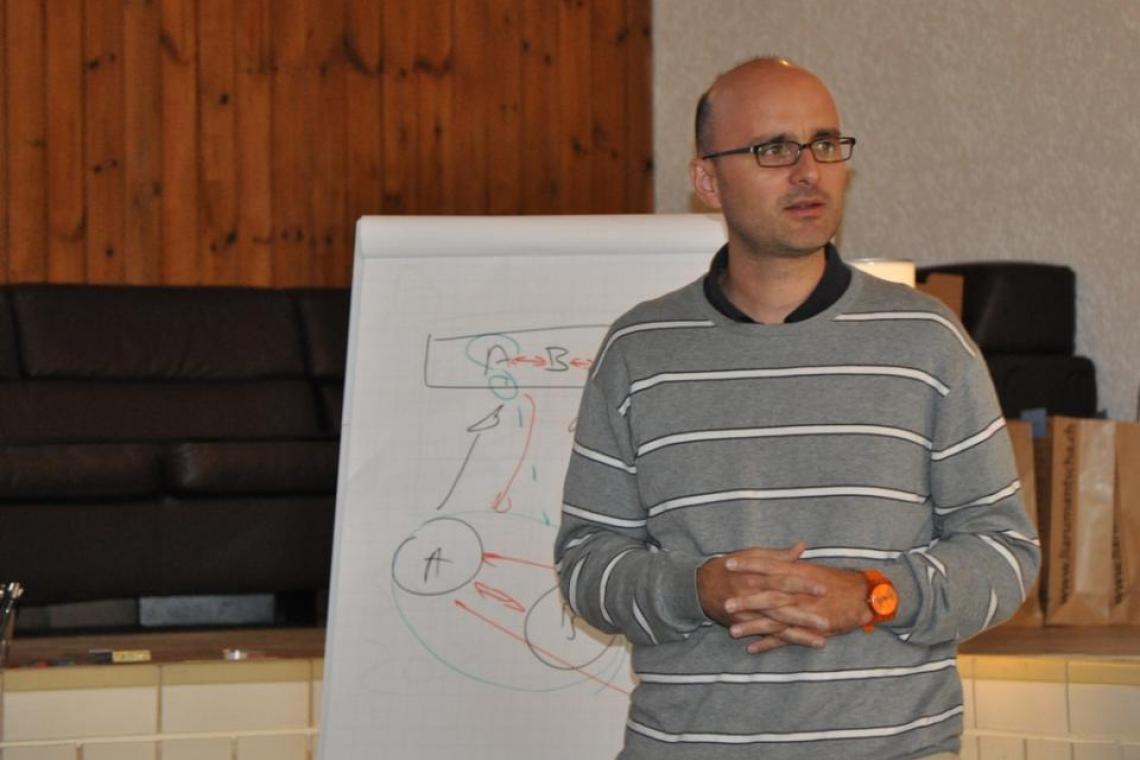Possibilities for direct democracy in BiH – similarities and differences in comparison to Switzerland
Nenad Stojanović was born in Sarajevo and graduated from a secondary grammar school in Ascona in the Canton of Ticino. He holds a degree in political sciences in Geneva and a PhD from the University of Zurich. In 2010, the Swiss Political Science Association granted Nenad an award for the best PhD thesis, which focused on the research of gender, language and ethnic quotas in democratic processes, which is also the topic related to his scientific engagement in Bosnia and Herzegovina.
Nenad is also a member of the Federal Commission against Racism and the National Research Council of the Swiss National Science Foundation (SNSF), where he is part of the non-professorial teaching staff, that is, teaching fellows, senior teaching fellows and assistant professors.
Possibilities for direct democracy in Bosnia and Herzegovina – similarities and differences in comparison to Switzerland
At the Faculty of Political Sciences of the University of Lucerne, Nenad Stojanović teaches democracy models in multi-cultural societies, a subject that focuses on the manner in which the issues of discrimination, nationalism, minority quotes, language and ethnic representation are resolved. The main focus of his research, published in numerous scientific publications and journals, is the political model of the Swiss society and the manner in which direct democracy functions in such a complex society.
''The issue that I am most interested in is how it is possible to achieve democracy and maintain a democratic system in a multi-national, multi-religious or multi-ethnic society, a society with different groups of persons'', explains Nenad his main scientific interest, ''and how it is possible to further develop democratic processes under such circumstances''.
Nenad's origin from Bosnia and Herzegovina and his growing up in Switzerland, both complex countries with different population groups that have to find a functioning model of co-existence, have certainly influenced his interest in comparing historical experiences of these two countries, their similarities and differences and democratic development processes.
When asked about political similarities and differences between Switzerland and Bosnia and Herzegovina, Nenad offers an interesting response:
''Both countries have complex societies, with different population groups that have either different languages or ethnic identities. In Switzerland, there are four language groups, and religion used to be very important in the past, because there were pronounced differences between the Catholics and Protestants. In Bosnia and Herzegovina, there are different ethnic groups. However, in Switzerland, the concept of the Swiss nation developed throughout the history. It had been built openly as an attempt to create a common identity of the people living here based on which they would be recognisable, irrespective of their language or religion. Such nation-building was successful in Switzerland, so that people here feel as part of the Swiss nation today. In Bosnia and Herzegovina it is difficult to speak of this, because there is a conviction that a nation has to be a mono-ethnic community. Switzerland is an example that this does not have to be the case. It shows that it is necessary to have something in common that connects people in order for democracy to function successfully. In Bosnia and Herzegovina there are many things connecting the people, the language, culture, customs and various cultural characteristics, so that there are certainly objective elements that create a connection between people and are part of their common identity. However, the subjective element is missing, namely the conviction of belonging to a certain political community''.
When it comes to the relationship between a minority and majority in democratic societies with different groups of people, Nenad says the following:
''In Switzerland, people are used to frequently participating in referendums on various issues and they accept when they lose the vote, which means that they accept being a minority. The effect of direct democracy in Switzerland is very interesting, since it permanently creates new minorities and majorities, so that a citizen is never a minority or a majority all the time. For example, you might be a member of a minority group (Ticino), but you are not always a minority, because your opinion might win in a referendum on a certain issue. This, of course, strongly increases the legitimacy of democratic institutions.
In Bosnia and Herzegovina, on the other hand, elections are held every four years and they happen among ethnical parties, so that you will always be a minority if you belong to a minority ethnic group. In Switzerland, people are asked about the construction of a new tunnel, a pension decrease or increase, financing of urban projects, and I don't see why people in Bosnia and Herzegovina should not be asked about such issues''.
Nenad successfully implemented two scientific projects in Bosnia and Herzegovina, the Swiss Contribution to Constitutional Reform in Bosnia and Herzegovina in the period 2008-2010 and 2012-2013, which was financed by the Swiss Developmentand Cooperation Agency (SDC), and Ethnic Quotas and Political Representation of Minorities in Local Politics in Bosnia and Herzegovina in the period 2010-2014, which was financed by SDC and the Scientific Cooperation between Eastern Europe and Switzerland (SCOPES). Research was conducted in cooperation with the University and Centre for Social Research Analitika in Sarajevo regarding the extent to which ethnic quotes for national minorities at municipal level, which were introduced in a new law adopted in 2004, were implemented and their effect.
Nenad believes that there are numerous cooperation opportunities with Bosnia and Herzegovina and that in this process the Bosnian and Herzegovinian diaspora in Switzerland has strong professional potentials to contribute to further development of Bosnia and Herzegovina:
''We all can agree that the situation in Bosnia and Herzegovina is unsatisfactory from many points of view, but in my case, but also in case of all persons that work on projects in Bosnia and Herzegovina, there is certainly an emotional aspect and the wish to assist the development of Bosnia and Herzegovina. The diaspora has a great potential, since its members still have links with Bosnia and Herzegovina and the wider region and they could provide support to improving the situation in Bosnia and Herzegovina, and hopefully we can achieve at least some improvements.
From my perspective, the best way for me to contribute is through my academic activities, since I deal with topics that are relevant for a country such as Bosnia and Herzegovina and I believe that as an academic researcher I can present some new solutions for Bosnia and Herzegovina. Of course, it is not sufficient to only write scientific papers, it is also important to continuously communicate both with scientific researchers and the public at large in Bosnia and Herzegovina. I am trying to discuss important issues regarding democracy and I am also trying to explain the advantages of direct democracy through media appearances in Bosnia and Herzegovina. My intention is to point out the issue that citizens in Bosnia and Herzegovina are seen only as voters during an election, who are not asked anything during four years following the election. They basically do not decide on anything and less and less of them even vote. Parties never ask citizens about issues that directly influence their lives and specific situations''.
Nenad's texts and interviews were published in Bosnia and Herzegovina in daily newspapers Oslobođenje, Avaz, Nezavisne novine, FENA agency and in weekly newspapers Dani and Slobodna Bosna. His analysis of similarities and differences between political models of Switzerland and Bosnia and Herzegovina was published in Pregled, a scientific journal published by the Faculty of Political Sciences in Sarajevo (please see the link at the end of the text).
Within the framework of the project Swiss Support to Constitutional Reform in Bosnia and Herzegovina, Nenad organised several seminars and events with representatives of Bosnian and Herzegovinian political parties, MPs and journalists both in Switzerland and Bosnia and Herzegovina. A summer school in Lenzerheid, Canton Grisons, and a winter school in Neum, were organised for students of law and political sciences from Bosnia and Herzegovina in 2013. The main topic of all seminars was democracy in complex societies and methods to ensure functioning democratic processes.
Nenad believes that it is very important to continue scientific research and academic cooperation between Bosnia and Herzegovina and Switzerland: ''I am of the opinion that there are very good and motivated researchers, professors and assistant professors in Bosnia and Herzegovina. I had a chance to cooperate and teach students about democracy in multi-ethnic societies at the Faculty of Political Sciences in Sarajevo, and I have seen that there are many good and interested students. They might lack networking with researchers from other countries and access to the latest research findings, and that was exactly one of the ideas of the i-platform, to facilitate a transfer of scientific knowledge and assist the process of development of science in Bosnia and Herzegovina and networking among its experts. It is also important to open up possibilities for scholarships for multiple-month study stays and doctoral and post-doctoral studies. These might be small steps, but they are at the same time big steps forward. We all can take a step forward in our field of work and that can certainly have a specific impact on the situation in Bosnia and Herzegovina. We cannot influence system structures directly, since this is a task for local political and academic institutions, but we can certainly help with the further development in our field of work and establish cooperation with colleagues in Bosnia and Herzegovina''.
Nenad believes that motivated students and young researchers need to be given a new perspective: ''I think that it is important to give them hope that, if they work well and have good grades, they will be able to specialise or attend doctoral studies at a known university abroad. This is possible, since in Switzerland both governmental and private agencies offer scholarships for different levels of studies. This was also our goal when we organised the summer and winter school for around 30 students from Bosnia and Herzegovina, which enabled them to get in touch with scientific institutions in Switzerland and continue cooperating, and we were successful in facilitating this''.
_______________________________________________________________
Links:
Nenad Stojanović, CV and research
2007 'Konsocijacija - Švajcarska i Bosna i Hercegovina', Pregled - Časopis za društvena pitanja 85(3-4): 63-87. PDF
2011 ''Limits of Consociationalism and Possible Alternatives'', Transitions – Journal of Social Issues of the University of Geneva and University of Brussels

